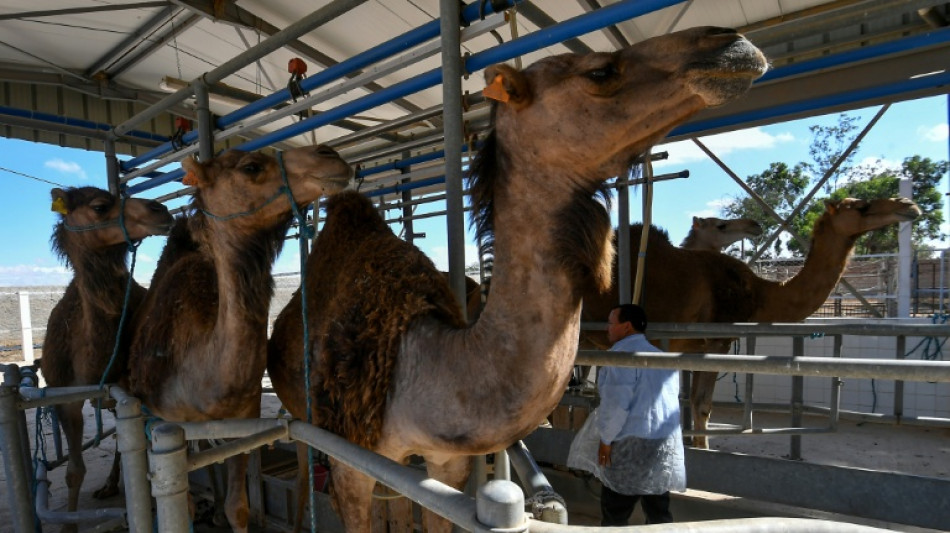
-
 Madagascar protests reignite, UN says at least 22 dead
Madagascar protests reignite, UN says at least 22 dead
-
Taliban shut down communications across Afghanistan
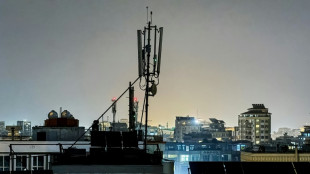
-
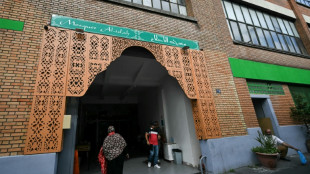 Serbia arrests 11 accused of stirring Jewish-Muslim hate in France, Germany
Serbia arrests 11 accused of stirring Jewish-Muslim hate in France, Germany
-
J.K. Rowling attacks 'ignorant' Harry Potter star Emma Watson

-
 Electronic Arts to be bought by Saudi-led consortium for $55 bn
Electronic Arts to be bought by Saudi-led consortium for $55 bn
-
N.Korea vows at UN never to give up nuclear
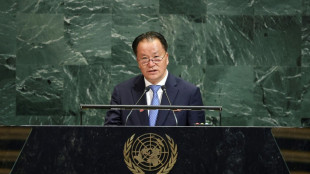
-
 Hamilton reveals 'hardest decision' over dog's death
Hamilton reveals 'hardest decision' over dog's death
-
Springsteen denounces 'hatred' in America at biopic premiere

-
 Stock markets shrug off US government shutdown fears
Stock markets shrug off US government shutdown fears
-
UK's Labour plans tougher rules on migrants to halt hard right

-
 Trump 'very confident' of Gaza deal as he hosts Netanyahu
Trump 'very confident' of Gaza deal as he hosts Netanyahu
-
'High chance' of India winning Women's Cricket World Cup: captain Kaur
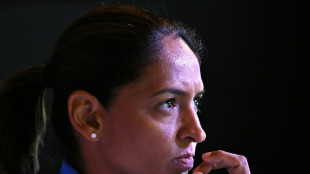
-
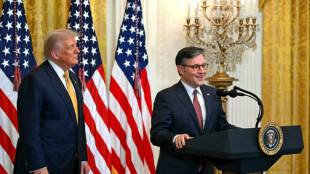 Trump meets Democrats in last-gasp talks before US government shutdown
Trump meets Democrats in last-gasp talks before US government shutdown
-
No 'Angels': Bulgarians shake down Robbie Williams convoy

-
 German music body sues OpenAI alleging copyright breaches
German music body sues OpenAI alleging copyright breaches
-
Cannabis extract relieves chronic back pain: high-quality trial
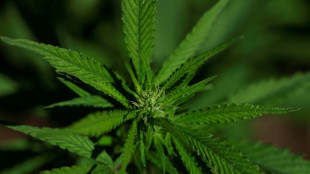
-
 African players in Europe: Sarr helps sink leaders Liverpool
African players in Europe: Sarr helps sink leaders Liverpool
-
Madagascar protests reignite as police launch tear gas

-
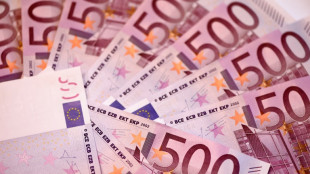 German finds 15mn-euro winning lotto ticket in coat
German finds 15mn-euro winning lotto ticket in coat
-
Injury retirements hit China Open but Sinner reaches semis unscathed

-
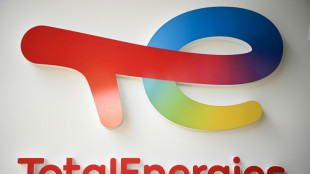 TotalEnergies to boost output, cut $7.5 bn in costs
TotalEnergies to boost output, cut $7.5 bn in costs
-
World Rugby unfazed over England dominance of women's game

-
 Bruised Real Madrid still defining spirit, personality: Alonso
Bruised Real Madrid still defining spirit, personality: Alonso
-
Dolly Parton scraps Vegas shows over health issues

-
 Maresca says 'no panic' at Chelsea despite mini-slump
Maresca says 'no panic' at Chelsea despite mini-slump
-
FIFPro sounds alarm over 'extreme' conditions at 2026 World Cup

-
 Jaguar Land Rover to partly resume output after cyberattack
Jaguar Land Rover to partly resume output after cyberattack
-
Springboks recall De Jager after Mostert withdraws

-
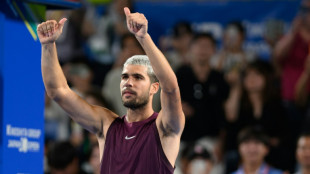 Alcaraz fights back in Tokyo to emulate Nadal with 10th final of season
Alcaraz fights back in Tokyo to emulate Nadal with 10th final of season
-
England bowler Woakes retires from international cricket

-
 UK plans tougher rules for migrants seeking to stay in country
UK plans tougher rules for migrants seeking to stay in country
-
Jailed Thai ex-PM Thaksin requests royal pardon: lawyer

-
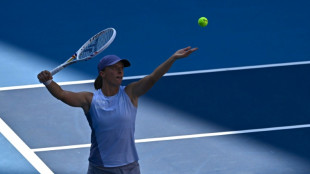 Swiatek says may flout 'crazy' rules to protect health
Swiatek says may flout 'crazy' rules to protect health
-
Paris Olympics and Paralympics cost French state 6.6bn euros: audit body
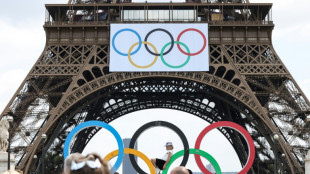
-
 Rooney says he has 'no faith' that Amorim can revive Man Utd
Rooney says he has 'no faith' that Amorim can revive Man Utd
-
'Are you watching Donald Trump?': Europe's Ryder Cup golfers taunt president

-
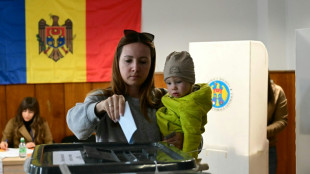 Moldova's pro-EU party hails poll win despite 'dirty' Russian tactics
Moldova's pro-EU party hails poll win despite 'dirty' Russian tactics
-
Typhoon Bualoi kills dozens in Vietnam and Philippines

-
 Wallabies' big-man Skelton ready to impose himself against All Blacks
Wallabies' big-man Skelton ready to impose himself against All Blacks
-
Robertson wants All Blacks to 'pressure' Wallabies in rematch

-
 Sinner cruises into China Open semi-finals as Swiatek moves on
Sinner cruises into China Open semi-finals as Swiatek moves on
-
GSK switches CEO as Trump tariffs test pharma
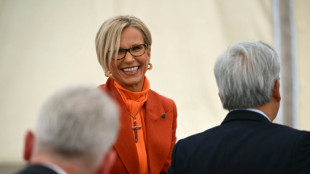
-
 Trump to push Netanyahu on Gaza peace plan at White House
Trump to push Netanyahu on Gaza peace plan at White House
-
Most markets track Wall St gains after US inflation data

-
 Typhoon Bualoi batters Vietnam coast, killing 11
Typhoon Bualoi batters Vietnam coast, killing 11
-
Germany's Lufthansa to slash 4,000 jobs by 2030

-
 Moldova's pro-EU party wins key polls after Russian meddling claims
Moldova's pro-EU party wins key polls after Russian meddling claims
-
Mourinho Chelsea return prompts old memories, mixed feelings

-
 'Predators': how reality TV explains Epstein obsession
'Predators': how reality TV explains Epstein obsession
-
Most Asian markets track Wall St higher after US inflation data


In Tunisia's arid south, camel milk offers hope for economic gain
Deep in Tunisia's desert south, camels stride toward humming milking machines. Their milk is at the heart of a women-led project promising an economic lifeline for disadvantaged communities.
Spearheading this effort is 32-year-old Latifa Frifita, who launched Tunisia's first, and so far only, camel milk pasteurisation unit two years ago in Medenine.
The unit is based on research by Amel Sboui, 45, a senior biochemist at the Institute of Arid Regions, who succeeded in patenting a pasteurisation method that preserves camel milk's "nutritional and therapeutic qualities" while extending its shelf life to two weeks.
Containing up to five times more iron than cow's milk, camel milk is non-allergenic and some studies have suggested that it has immune-boosting and anti-inflammatory properties.
Pasteurisation of camel milk is essential to bringing it to wider markets because the milk is highly perishable.
Sboui and her lab of ten researchers -- eight of them women -- also conducted clinical trials at the regional hospital which showed that consuming the milk could help diabetic patients reduce their medication doses by up to half in some cases.
- Growing demand -
Jobs and investment in southern Tunisia are scarce, yet entrepreneur Frifita has pinned her hopes on a product long undervalued by local herders and is working to change their minds.
At first, she said she faced many challenges when trying to convince the herders to sell milk instead of meat -- a far more common commodity.
"They didn't see the point," she said while testing a fresh sample of the milk, wearing a hairnet. "They usually keep it for themselves or give it away for free."
But, having built "a relationship of trust" and with demand for the product growing, Frifita said she planned to reach further agreements with breeders.
Frifita, who holds a master's degree in food technologies, began sketching out her idea in 2016, but it was not until 2023 that she launched ChameLait with the support of the Institute, which provided her startup with premises to operate.
Today, she is happy to "promote a local product that defines southern Tunisia", where dromedaries are a fixture of the landscape, she said.
A mother of a two-year-old girl, she said she chose to "stay and invest in her region" rather than following her sports coach husband to the Middle East.
The station in Chenchou, about 100 kilometres (60 miles) south of Medenine, also serves as a training site for herders to learn mechanised milking, which yields up to seven litres a day compared to just two litres with traditional hand milking.
Frifita now runs the business alongside two other women -- one of them her older sister, Besma -- producing about 500 litres of pasteurised milk per week with the aim of doubling their output within two years.
ChameLait sells its products on demand and through a dozen retail shops, starting at 12 Tunisian dinars (about $4) per litre -- double the price Frifita pays breeders.
And the demand has been growing.
Amel Sboui, a 45-year-old senior researcher at the Institute, said this was largely due to word of mouth because of "people realising the milk's health benefits".
- 'A future in Tunisia' -
Beyond ChameLait and with more research needed, Sboui said he saw additional potential in freeze-dried camel milk, which could one day be sold "as a medicine, a functional food or food supplement".
The Institute views Frifita's business as a model enterprise.
Established under a programme by Tunisia's first president, Habib Bourguiba, the organisation aims to use scientific research to benefit the country's harshest and most neglected areas.
Medenine, with a population of a little over half a million, suffers from high levels of poverty and unemployment -- 22 and 19 percent respectively, compared to national averages of 15 and 16 percent.
These conditions have driven thousands of young people to leave, either for coastal cities or to seek opportunities abroad.
"Our primary goal, even as a research centre, is to create added value and jobs," said Moez Louhichi, head of innovation at the Institute.
By supporting "farmers and young entrepreneurs in promoting the region's resources, we encourage them to build their future here in Tunisia".
Since 2010, the Institute has helped launch 80 businesses, creating between 600 and 1,000 jobs, according to Louhichi.
A major camel milk collection centre is expected to open by the end of 2025 to expand mechanised milking in the region.
Louhichi said this would help the sector grow, turning the once-overlooked commodity into southern Tunisia's "white gold".
C.Bruderer--VB
